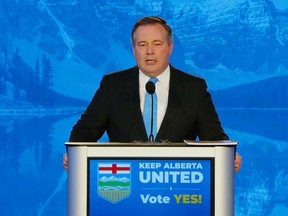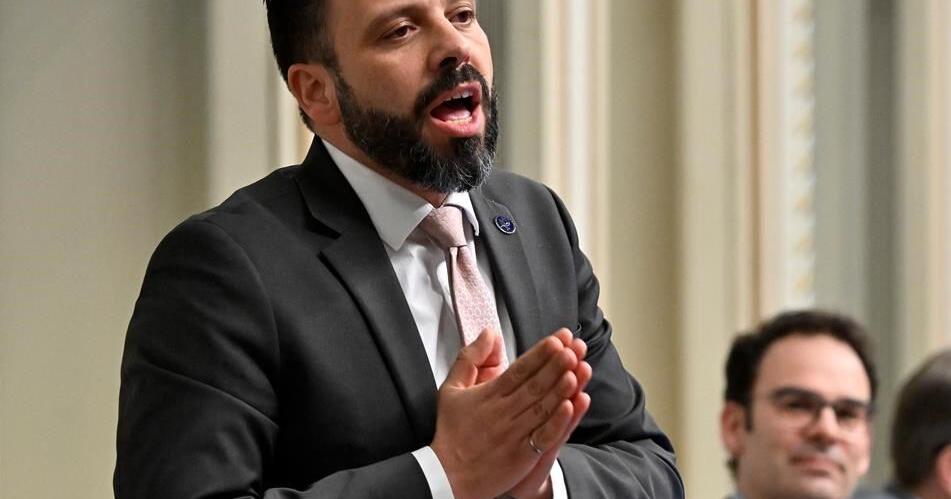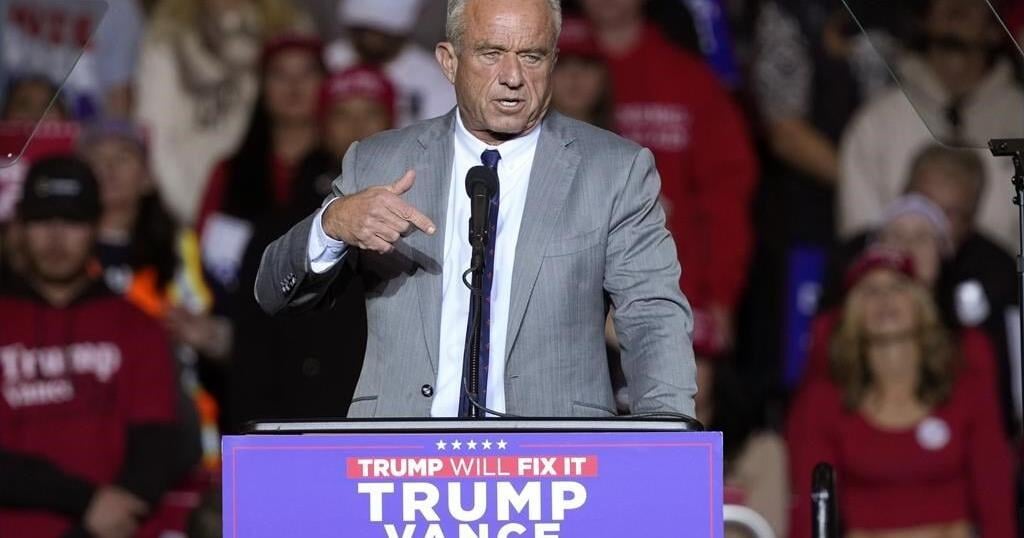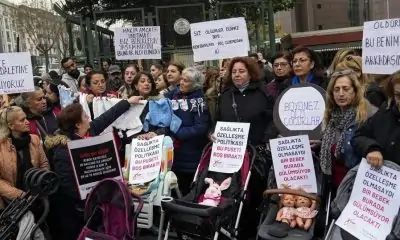Article content
Premier Jason Kenney’s backers sincerely hope their Battle of Alberta ends the very night the monumental Flames-Oilers version begins.

There’s no certainty at all that the political fight ends Wednesday, even if Jason Kenney wins a majority
Premier Jason Kenney’s backers sincerely hope their Battle of Alberta ends the very night the monumental Flames-Oilers version begins.
Kenney will hold an event at Spruce Meadows for supporters, with media also attending, starting late afternoon Wednesday. The results from a vote on his leadership are expected by about 6 p.m.
“We’re anticipating a very exciting and intense evening with the eyes of the entire province glued to a bitterly contested battle, the result of which will reverberate across Alberta maybe for years to come,” says key Kenney campaigner Brock Harrison.
“Oh, and we’re also going to finally see the result of our leadership review.”
The count will come from Cynthia Moore, the UCP president, and chief returning officer Rick Orman.
Shortly after that, the Flames and the Oilers face off at the Saddledome for Game 1 of the second round of Stanley Cup playoff action.


Harrison says, “Although our results won’t be known until the early evening, we will absolutely make sure we’re all wrapped up in good time for people to settle in and watch the game.”
The unforgivable political sin for the next two weeks would be to interfere with the real Battle of Alberta.
In hockey, unlike politics, conflict is right out there on the ice. There’s a serious chance of sportsmanship breaking out, and we know it will be over by May 30 at the latest, with one team clearly the winner.
There’s no certainty at all that the political fight ends Wednesday, even if Kenney wins a majority and can technically stay on as party leader and premier.

Many of his opponents are in no mood to fall into line. New UCP member Brian Jean may not accept the result.
Other caucus members like Peter Guthrie, Angela Pitt and Leela Aheer are unlikely to reconcile with Kenney, even if he has a substantial majority.
The premier is being advised to purge the whole group from caucus, sending them to sit as Independents with already expelled members Todd Loewen and Drew Barnes.
Kenney may not follow that advice right away. Some effort at conciliation is possible.
But after all that’s been said and done in recent months — the anti-Kenney letters and comments from his own MLAs — it’s hard to imagine a sudden burst of goodwill popping up with the spring tulips.
And there’s a chance that the premier doesn’t get a majority and must resign; or that his majority is so small he would still be under extreme pressure to quit.
One curiosity is that the political result, unlike the hockey series, is already decided and has been since May 11.
That was the cutoff date for returned mail-in ballots to reach the auditor, Deloitte Canada in Edmonton. No ballots received later were allowed.
This return mail has been examined for voter verification but the actual ballots remain in their sealed envelopes. They will be opened and counted starting the morning of May 18 — this Wednesday.
Suspicion that envelopes were improperly handled may actually have been amplified by the party’s running livestream of voter ID verification. The sight of people repeatedly opening envelopes and discarding some paper seemed mysterious.
But even Kenney opponents who did some of the work (they were allowed by the party) say there’s no way the verification could have been gamed.
Once voter ID was established, the ballot envelopes were packed into clear plastic boxes, each sealed with a unique code.
When the votes are counted Wednesday, dozens of people will be present including scrutineers from hostile UCP riding associations.
That doesn’t answer questions about membership sales, some of which are now being investigated by Elections Alberta. In today’s political climate, there’s always doubt.
That’s one reason the hockey series is so welcome. At least we’ll be absolutely sure who won.
Don Braid’s column appears regularly in the Herald
Twitter: @DonBraid

MONTREAL – A Quebec political party has voted to support one of its members facing backlash for saying that racialized people are regularly disparaged at the provincial legislature.
Québec solidaire members adopted an emergency resolution at the party’s convention late Sunday condemning the hate directed at Haroun Bouazzi, without endorsing his comments.
Bouazzi, who represents a Montreal riding, had told a community group that he hears comments every day at the legislature that portray North African, Muslim, Black or Indigenous people as the “other,” and that paint their cultures are dangerous or inferior.
Other political parties have said Bouazzi’s remarks labelled elected officials as racists, and the co-leaders of his own party had rebuked him for his “clumsy and exaggerated” comments.
Bouazzi, who has said he never intended to describe his colleagues as racist, thanked his party for their support and for their commitment to the fight against systemic racism.
Party co-spokesperson Gabriel Nadeau-Dubois said after Sunday’s closed-door debate that he considers the matter to be closed.
This report by The Canadian Press was first published Nov. 18, 2024.
The Canadian Press. All rights reserved.

RICHMOND, Va. (AP) — Democrats who control both chambers of the Virginia legislature are hoping to make good on promises made on the campaign trail, including becoming the first Southern state to expand constitutional protections for abortion access.
The House Privileges and Elections Committee advanced three proposed constitutional amendments Wednesday, including a measure to protect reproductive rights. Its members also discussed measures to repeal a now-defunct state constitutional ban on same-sex marriage and ways to revise Virginia’s process to restore voting rights for people who served time for felony crimes.
“This meeting was an important next step considering the moment in history we find ourselves in,” Democratic Del. Cia Price, the committee chair, said during a news conference. “We have urgent threats to our freedoms that could impact constituents in all of the districts we serve.”
The at-times raucous meeting will pave the way for the House and Senate to take up the resolutions early next year after lawmakers tabled the measures last January. Democrats previously said the move was standard practice, given that amendments are typically introduced in odd-numbered years. But Republican Minority Leader Todd Gilbert said Wednesday the committee should not have delved into the amendments before next year’s legislative session. He said the resolutions, particularly the abortion amendment, need further vetting.
“No one who is still serving remembers it being done in this way ever,” Gilbert said after the meeting. “Certainly not for something this important. This is as big and weighty an issue as it gets.”
The Democrats’ legislative lineup comes after Republican Governor Glenn Youngkin, to the dismay of voting-rights advocates, rolled back a process to restore people’s civil rights after they completed sentences for felonies. Virginia is the only state that permanently bans anyone convicted of a felony from voting unless a governor restores their rights.
“This amendment creates a process that is bounded by transparent rules and criteria that will apply to everybody — it’s not left to the discretion of a single individual,” Del. Elizabeth Bennett-Parker, the patron of the voting rights resolution, which passed along party lines, said at the news conference.
Though Democrats have sparred with the governor over their legislative agenda, constitutional amendments put forth by lawmakers do not require his signature, allowing the Democrat-led House and Senate to bypass Youngkin’s blessing.
Instead, the General Assembly must pass proposed amendments twice in at least two years, with a legislative election sandwiched between each statehouse session. After that, the public can vote by referendum on the issues. The cumbersome process will likely hinge upon the success of all three amendments on Democrats’ ability to preserve their edge in the House and Senate, where they hold razor-thin majorities.
It’s not the first time lawmakers have attempted to champion the three amendments. Republicans in a House subcommittee killed a constitutional amendment to restore voting rights in 2022, a year after the measure passed in a Democrat-led House. The same subcommittee also struck down legislation supporting a constitutional amendment to repeal an amendment from 2006 banning marriage equality.
On Wednesday, a bipartisan group of lawmakers voted 16-5 in favor of legislation protecting same-sex marriage, with four Republicans supporting the resolution.
“To say the least, voters enacted this (amendment) in 2006, and we have had 100,000 voters a year become of voting age since then,” said Del. Mark Sickles, who sponsored the amendment as one of the first openly gay men serving in the General Assembly. “Many people have changed their opinions of this as the years have passed.”
A constitutional amendment protecting abortion previously passed the Senate in 2023 but died in a Republican-led House. On Wednesday, the amendment passed on party lines.
If successful, the resolution proposed by House Majority Leader Charniele Herring would be part of a growing trend of reproductive rights-related ballot questions given to voters. Since 2022, 18 questions have gone before voters across the U.S., and they have sided with abortion rights advocates 14 times.
The voters have approved constitutional amendments ensuring the right to abortion until fetal viability in nine states: Arizona, California, Colorado, Maryland, Michigan, Missouri, Montana, Ohio and Vermont. Voters also passed a right-to-abortion measure in Nevada in 2024, but it must be passed again in 2026 to be added to the state constitution.
As lawmakers debated the measure, roughly 18 members spoke. Mercedes Perkins, at 38 weeks pregnant, described the importance of women making decisions about their own bodies. Rhea Simon, another Virginia resident, anecdotally described how reproductive health care shaped her life.
Then all at once, more than 50 people lined up to speak against the abortion amendment.
“Let’s do the compassionate thing and care for mothers and all unborn children,” resident Sheila Furey said.
The audience gave a collective “Amen,” followed by a round of applause.
___
Associated Press writer Geoff Mulvihill in Cherry Hill, New Jersey, contributed to this report.
___
Olivia Diaz is a corps member for The Associated Press/Report for America Statehouse News Initiative.

NEW YORK (AP) — President-elect Donald Trump says he will nominate anti-vaccine activist Robert F. Kennedy Jr. to lead the Department of Health and Human Services, putting him in charge of a massive agency that oversees everything from drug, vaccine and food safety to medical research and the social safety net programs Medicare and Medicaid.
“For too long, Americans have been crushed by the industrial food complex and drug companies who have engaged in deception, misinformation, and disinformation when it comes to Public Health,” Trump said in a post on his Truth Social site announcing the appointment. Kennedy, he said, would “Make America Great and Healthy Again!”
Kennedy, a former Democrat who ran as an independent in this year’s presidential race, abandoned his bid after striking a deal to give Trump his endorsement with a promise to have a role in health policy in the administration.
He and Trump have since become good friends, with Kennedy frequently receiving loud applause at Trump’s rallies.
The expected appointment was first reported by Politico Thursday.
A longtime vaccine skeptic, Kennedy is an attorney who has built a loyal following over several decades of people who admire his lawsuits against major pesticide and pharmaceutical companies. He has pushed for tighter regulations around the ingredients in foods.
With the Trump campaign, he worked to shore up support among young mothers in particular, with his message of making food healthier in the U.S., promising to model regulations imposed in Europe. In a nod to Trump’s original campaign slogan, he named the effort “Make America Healthy Again.”
It remains unclear how that will square with Trump’s history of deregulation of big industries, including food. Trump pushed for fewer inspections of the meat industry, for example.
Kennedy’s stance on vaccines has also made him a controversial figure among Democrats and some Republicans, raising question about his ability to get confirmed, even in a GOP-controlled Senate. Kennedy has espoused misinformation around the safety of vaccines, including pushing a totally discredited theory that childhood vaccines cause autism.
He also has said he would recommend removing fluoride from drinking water. The addition of the material has been cited as leading to improved dental health.
HHS has more than 80,000 employees across the country. It houses the Food and Drug Administration, the Centers for Disease Control and Prevention, the Medicare and Medicaid programs and the National Institutes of Health.
Kennedy’s anti-vaccine nonprofit group, Children’s Health Defense, currently has a lawsuit pending against a number of news organizations, among them The Associated Press, accusing them of violating antitrust laws by taking action to identify misinformation, including about COVID-19 and COVID-19 vaccines. Kennedy took leave from the group when he announced his run for president but is listed as one of its attorneys in the lawsuit.
__ Seitz reported from Washington.
The Canadian Press. All rights reserved.


Health workers go on trial in Turkey accused of private care scheme linked to 10 infant deaths


A look at Rafael Nadal’s 22 Grand Slam titles as he prepares to retire after the Davis Cup


6 monkeys are still on the loose from a South Carolina compound after dozens escaped


Job Seekers’ Trinity Focus, Anger and Evidence


CBP Announces New Hours for Border Crossing Locations


Which Candidate Would You Hire? A or B?


Trudeau talks root causes of hunger at G20, will meet with Biden, other leaders


Parliament remains gridlocked amid Trump trade talk and postal strike